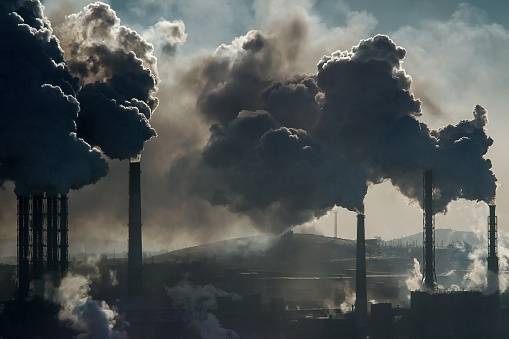The Survey showed that the country’s energy needs are expected to grow 2 to 2.5 times by 2047….reports Asian Lite News
Recognising its position as one of the most climate-vulnerable countries, India has made significant progress on environmental protection, according to the Economic Survey 2023-24, tabled in Parliament on Monday.
The document was tabled by Finance Minister Nirmala Sitharaman, a day ahead of the Union Budget presentation.
The Survey showed that the country’s energy needs are expected to grow 2 to 2.5 times by 2047.
The country has “successfully reduced the emission intensity vis-a-vis its Gross Domestic Product (GDP) by 33 per cent between 2005 and 2019, thus achieving the initial Nationally Determined Contributions (NDCs) target for 2030, 11 years ahead of scheduled time”.
The country has “also committed to increasing the share of non-fossil fuel-based electricity to 40 per cent and enhancing forest cover to absorb 2.5 to 3 billion tonnes of carbon dioxide by 2030”.
It showed that the country’s GDP grew with a Compound Annual Growth Rate (CAGR) of about seven per cent between 2005 and 2019. On the other hand, the emissions grew at a CAGR of about four per cent, that is, “the rate of emissions growth is lower than the rate of growth of our GDP”.
“This shows that India has successfully decoupled its economic growth from greenhouse gas emissions, reducing the emission intensity of its GDP,” the Survey said.
As per the Survey, India’s primary energy needs in 2022-23 were met with almost “84 per cent from coal, oil and natural gas combined”.
With the addition of renewables, “the share of non-fossil power capacity increased to 45.4 per cent as of May 2024 from around 32 per cent in April 2014”.
The Survey attributed these to recent initiatives such as PM-Surya Ghar Yojana, launched in February 2024, harnessing India’s 7,600 km long coastline for wind energy; and the Green Hydrogen Mission which targets five MMT of green hydrogen by 2030.
Meanwhile, India has also led several international initiatives towards climate change mitigation and building resilience. These include the International Solar Alliance (ISA), One World, One Sun, One Grid, The Coalition for Disaster Resilient Infrastructure, The Infrastructure for Resilient Island States, and the goal of Net Zero, the Leadership Group for Industry Transition.
To sustain its economic growth rate over a quarter century and do it sustainably, India needs to keep “the environment and climate in mind”, said the Survey.
It also called for “the integration of climate change strategies into national development policy and planning as not merely an environmental imperative but more, as it impacts socio-economic stability, public health, banking, and public finances.
The Economic Survey is prepared by the Economics Division of the Department of Economic Affairs of the Finance Ministry under the guidance of India’s Chief Economic Advisor (CEA).

Leave a Reply